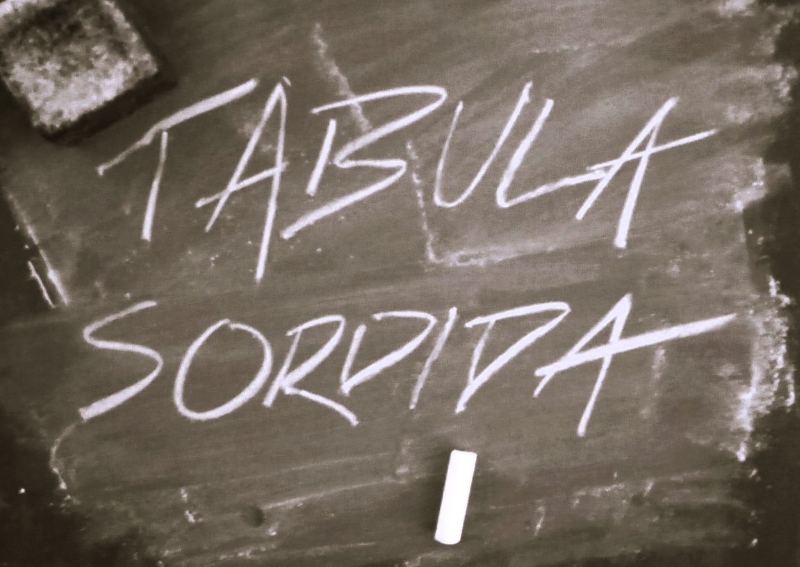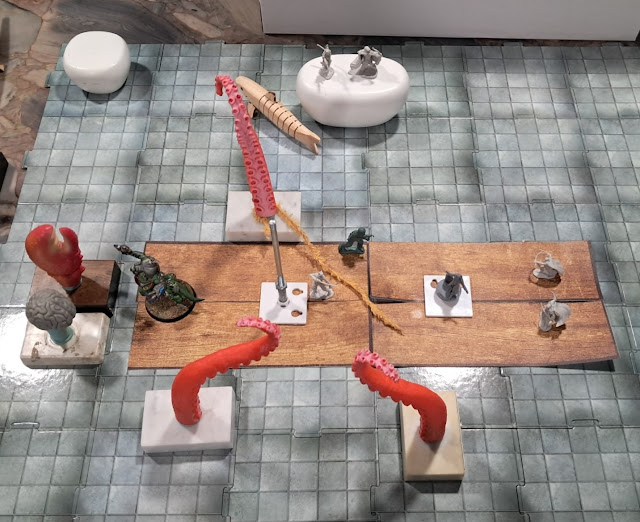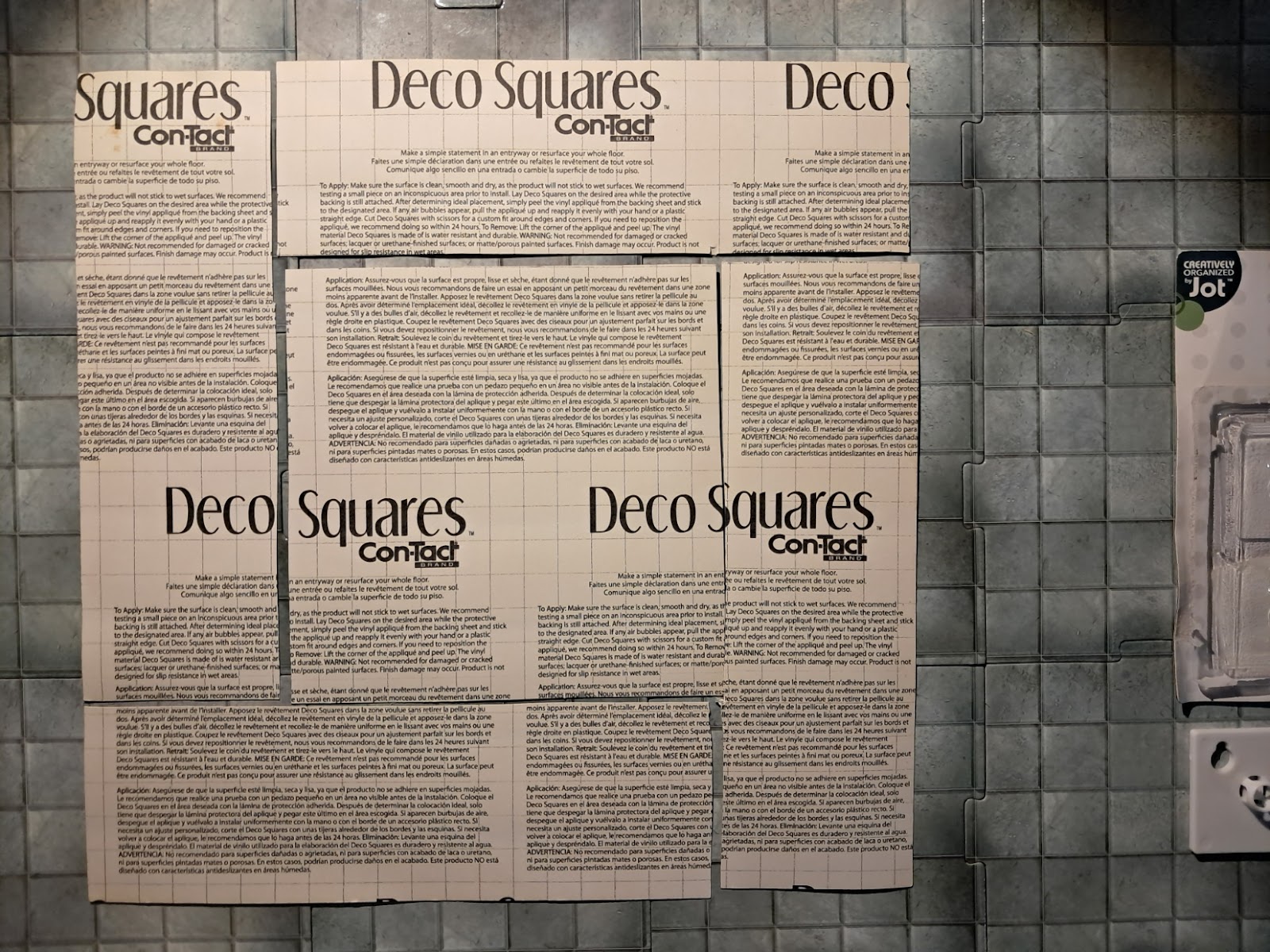Hot take: D&D 5.24 Backgrounds are a broken kludge of a system that does nothing more than shift the sin of racism to classism.
In the case of D&D it's actually Classism, as in Character Class.
In order to avoid (but not eliminate) the specter of racism from our beloved game, the creative team made two decisions: one as an overcorrection and the other as a half-measure.
The overcorrection was renaming the classic D&D Races as Species and eliminating the half-races such as Half-Orcs and Half-Elves. It's actually a minor overcorrection. Species is entirely too scientific of a term for a fantasy-based game and sticks out like a tiger in a pride of lions, and the elimination of half races does nothing but piss off more people than it placates (including those who found these half-races as representational of being a misfit of any stripe as opposed to being problematic) for no benefit to anyone, which I guess you could say makes it the ultimate compromise. But the overcorrection isn't the point of my analysis. It's the half-measure correction.
The half-measure was shifting the Attribute score bonuses that were formerly attached to which 5E Race one picked, be they +2/+1 or +1/+1/+1. Typically, people use these bonuses to enhance their Character Class choice, and for that reason in order to play a certain Class, you were naturally inclined to only pick the Races that enhanced the primary Stats of your aspiring Class. Want to be an archer or a thief? Pick the Race that enhances your Dex. Want to be a spellcaster that needs hit points and concentration for your squishy ADD self? First you have to pick a Race that enhances your Intelligence and your Constitution. Good luck with that - your only choice is Rock Gnome. This is what is called bio-essentialism. WOTC was right to decouple Attribute bonuses from Races for both moral reasons and mechanical reasons. It stifled creativity across the board and had no added benefit. In fact, they should have just eliminated them altogether and had people pick from the standard array or use the classic random generation (4d6-lowest, reroll 1s, arrange to taste, being my preferred method since 1980), but I digress.
Instead they implemented a half-measure. (Ironic that they should implement a half-measure while simultaneously eliminating Half-Races. Irony tastes delicious, but it isn't always good for you.) Now Stat bonuses, instead of being completely decoupled and free-floating, are now bound to Backgrounds. An oft-neglected and mostly-useless facet of character creation, Backgrounds usually gave you a couple Skill proficiencies and a minor beneficial quirk for role-playing enhancement like getting a free round of drinks if you met another Pittsburgher in the one Steelers bar in Denmark - yes, they and it exist, but chances are you'll never visit it. It's so miniscule of a bonus, it's the quark of quirks.
Backgrounds are supposed to represent your character in the Before-Times of being An Adventurer. Be it a Farmer or Criminal, Sage or Urchin (oh wait, sorry, Wayfinder - puh-leeze) these limited options of limited importance frequently represented either your social class or professional trade (or both) in the prescribed milieu of civilization, which like the Background feature, the players, and player-characters, never revisit or refer to again except once in a blue moon, like using trigonometry from your junior year of high school after you've declared yourself an English major and a math problem involving sines and cosines is the key to solving a murder mystery in your wanna-be Agatha Christie first-novel. And don't get me started on the wanna-be Myers-Briggs personality traits of Flaws, Bonds, et. al. (intimately tied to your class and trade by the way - also problematic and also eliminated - but I don't think it was eliminated for any upstanding moral reason).
So in order to give Backgrounds some mechanical weight (i.e. a reason to even frakkin exist as a formal thang in an RPG), in addition to the skill and tool proficiencies you now have your Stat bonuses tied to your Background (in addition to a 'new' concept called an Origin Feat - more on that later). Why they made this choice, I don't know. Evidently something in your Background (as opposed to the Foreground - more on that again later) enhanced the two defining Attributes that you'll eventually need the most for your life as an Adventurer as you abandon civilization and the stifling constraints of law and order, despite the fact that your life has evidently prepared you perfectly for your station in life as a Farmer or a Sage. (In other words, you're a spoiled brat who took a skip-year to Europe to practice your five years of expensive prep school French and never left Paris for the next decade.) Or maybe they just thought Stat bonuses needed to go somewhere and weren't allowed to exist as its own separate thing, because that would be too many steps and decisions. If that was the case, they've failed miserably, because now you have to take not your Race into account, but your societal Class (Background/Trade/pick-your-moniker) when it comes to picking your character Class, and if you pick incorrectly, it's supposedly a good thing, because we all know that constraints are frequently great for spurring creativity. Newsflash: while the latter is true, these presented Backgrounds aren't artificial restraints; they're design flaws. The Backgrounds that you would pick for the Stat bonuses also frequently give you skill proficiencies that you already get when you choose your Character Class. So all they've done is trade one stereotype for another, shifting the blame in poor game design choices from Race to (Societal) Class.
This is further compounded by the inclusion of Origin Feats, also tied to your Background. When I was first introduced to D&D 3.5 (which was not my first exposure to D&D - I've played since the Blue Book days beginning in 1980) I asked my DM Joe (R.I.P my dear, sweet, Archivist) WTF are these Feat thingys? His answer is something I took to heart and mind and keep with me to this day. Feats are formal breakings of game mechanics, canonical exceptions to a rule found in your Race or Class that let you do things such as express a magical flavor where you had none (sub-classes weren't a thing yet) or go twice when you could normally only go once. Awesome! I was allowed to add mayonnaise to my hotdog without someone giving me side-eye. For reasons both formal and informal, getting a Feat at first level in 5e became the default for most players (and the Racially superior customizable Humans because demihumans don't just don't come custom, like windows), despite Feats being an optional rule (that supposedly nobody played, even though everybody did - it just didn't register on D&D Beyond because the coolest Feats were locked behind the paywall that nobody paid. Instead of reading tea leaves or coffee grounds, WOTC evidently reads farklies).
I'm not against Origin Feats at all. I think they're wonderful, actually. Before 3rd level, every Cleric is like every other Cleric, and at 3rd level, every Tempest Cleric is like every other Tempest Cleric. Feats are mechanically intriguing and exceptionally flavorful. That's what they're designed to be - wonderful exceptions, not standardized rules. But in their infinite lack of wisdom, what they've done by tying them thematically to Backgrounds is make them Standardized Rules. Now, stereotypically, you'll get Sagey Stats, Sagey Skills, Sagey Feats and Sagey Tools. Fine, if you want to be a Magic User. It wouldn't be so bad if it weren't for the fact that the Stat array you're offered only speaks to your probable primary Stat and ignores your probable secondary Stat, and that the Skills you get from Background overlap with the ones you got when you picked your Class (which you now do first instead of last in some strange nod to Back to the Future, I suppose), necessitating the extra steps of unpicking it from your list and picking another skill if any are available. Real efficient, that.
It also doesn't help that the Origin Feats are horribly unbalanced right out of the gate. Now everyone is encouraged to pick Musician so they can play two instruments and hand out Ecstacy pills to their fellow party members all day long. WOTC evidently wants everyone to be grunge rock garage band where everyone gets their one round solo and a round of applause. They are in Seattle after all, so I guess it fits.
That, my friends, is Classism. It's so much more acceptable than Racism, don't you think? Not.
"But wait!" you say (go ahead, say it), "custom Backgrounds were promised and are coming in the DMG!" Yes, they are. And it doesn't take a genius to extrapolate how they'll work (unless they manage to screw that up, too). To create a custom Background, at the mechanical level, you'll pick 1 Tool proficiency, 1 Origin Feat, 2 Skill Proficiencies and create a pool of 3 Attributes from which you'll most likely only need two, but one should be kind and think of others who might be interested in also picking this Background (even though those people probably don't really exist, because they'll use it but tweak it themselves anyway). This is all subject to DM's approval of course (couched in the phrase 'in collaboration with your DM.' Newsflash - it's not a collaboration, any more than your hokey idea to open a Red Hots lemonade stand out of the back of your mom's minivan is a collaboration when she emphatically says no.) "This opens up an infinite number of combinations when you create your Background!" Well, it's not infinite, but it might as well be, as the number is pretty large. Here's the math (pool size for each calculation is based on a guesstimation of the actual number of elements):
a set of 3 Attributes out of a pool of 6: 120 total (6 * 5* 4)
a set of 2 Skills out of a pool of 16 (minimum): 306 total (16 * 15)
1 toolset Skill out of 24: 24 (minimum)
(There are actually multiple tool subsets, but it's not necessary to be exhaustive here)
1 Feat out of 10 (minimum): 10 total (I presume that there will be more Feats in the future)
Grand total combinations = 120 x 306 x 24 x 10 = 946,080 (and that is a minimum).
So what's the problem? It's too large to have any meaning as a "Background," let alone not addressing the problem of coming up with enough adjectives to use as categorical labels (such as Farmer or Sage).
Backgrounds are basically a form of Typology, as one would see in something like the Myers-Briggs Type Indicator or some interpretations of the Big Five Personality Traits. Too few Types and you risk stereotyping. Too many and it ceases to have any applicability or meaning. The MBTI describes 16 basic Psychological Types. For some, that's too few and they feel 'boxed in' by the descriptions. Those 16 Types are a result of the rules of how the basic 8 attributes in Jungian psychology (called function-attitudes) are arranged in order of preference, and only focus on the top two as being meaningful to discreetly describe the differences between the Types. Unshackle the theory from those rules and you get a result of 40,320 combinations (8! or 8 factorial or 8 * 7 * 6 * 5 * 4 * 3 * 2 *1). Pretty big number, but not exactly unmanageable. Much more manageable than 946,080, don't you think? Rather than being prescriptive, it becomes descriptive only to a point when the numbers are that large, if you know how to massage the language, but you better have a pretty good command of the language.
[Interesting side note: If there are 8 billion people on the planet, you would effectively have the same MBTI psychological profile as 198,413 other people on the planet using the unshackled theory.]
But it's also not the point. If you have that many combinations (in Typology or Backgrounds), the terms Type or Background become nominal, and if Background can mean anything to anybody, it quickly means nothing to nobody, because who would use it?
Including the Stat bonuses in the Background is also a problem of mis-application. One could choose not to pick the optimized choices for your +2/+1, but why would you hobble yourself out of the gate when the difference between a +2 and a +1 bonus from your primary Stat is so important so early in the game? For the interesting narrative purposes of being an underdog? That stands a pretty good chance of being a very short story indeed. Putting the Stat bonuses in the Background is the wrong place to put it. It belongs in the Foreground (see? I finally got around to addressing that term I mentioned at the beginning). That Foreground (the present, not the past) is when you choose your Adventuring Class. Narratively, those bonuses represent either the training you underwent to become that Class (something that was part-and-parcel to early versions of D&D where leveling up required some narrative backup, and has been lost in this era of video game glow ups as leveling). The level-up you get from being a level 0 character to a level 1 character are those Stat boosts. Again, Foreground, not Background. So let's remove them from the equation:
(306 skill combos) x (24 toolsets) x (10 feats) = 73440. Much better, but not enough. It's roughly double the theoretical maximum number of Jungian Types, especially if you include the toolsets that I didn't. Let's take out the number of Origin Feats (10) since they're exceptions to the Rule, not a function of the Rule of Backgrounds. Now we're down to 7334 skill and tool set combos. If you squint hard enough it sounds an awful like a Trade or Profession if you ask me. One could easily say that there are at least 7334 different kinds of Jobs in a neo-medieval setting if you got creative. It is Fantasy after all. But why bother? There's no added benefit to making them up.
So at this point we have pretty much deconstructed any reason to have Backgrounds as a mechanical benefit or a step in the character creation process.
This post is long enough for today. I think there's a great system out there that also eliminates any vestiges of bio-essentialism and racism and classism, and that's the Heritage system by Ghostfire Gaming that is currently being playtested and has appeared in a previous form in their Arora setting. It could also eliminate the steps of choosing skills and feats above by combining them with the Heritage system, which was develop to replace the Races throughout 5E, creating a much more rich and robust system.




































.gif)
